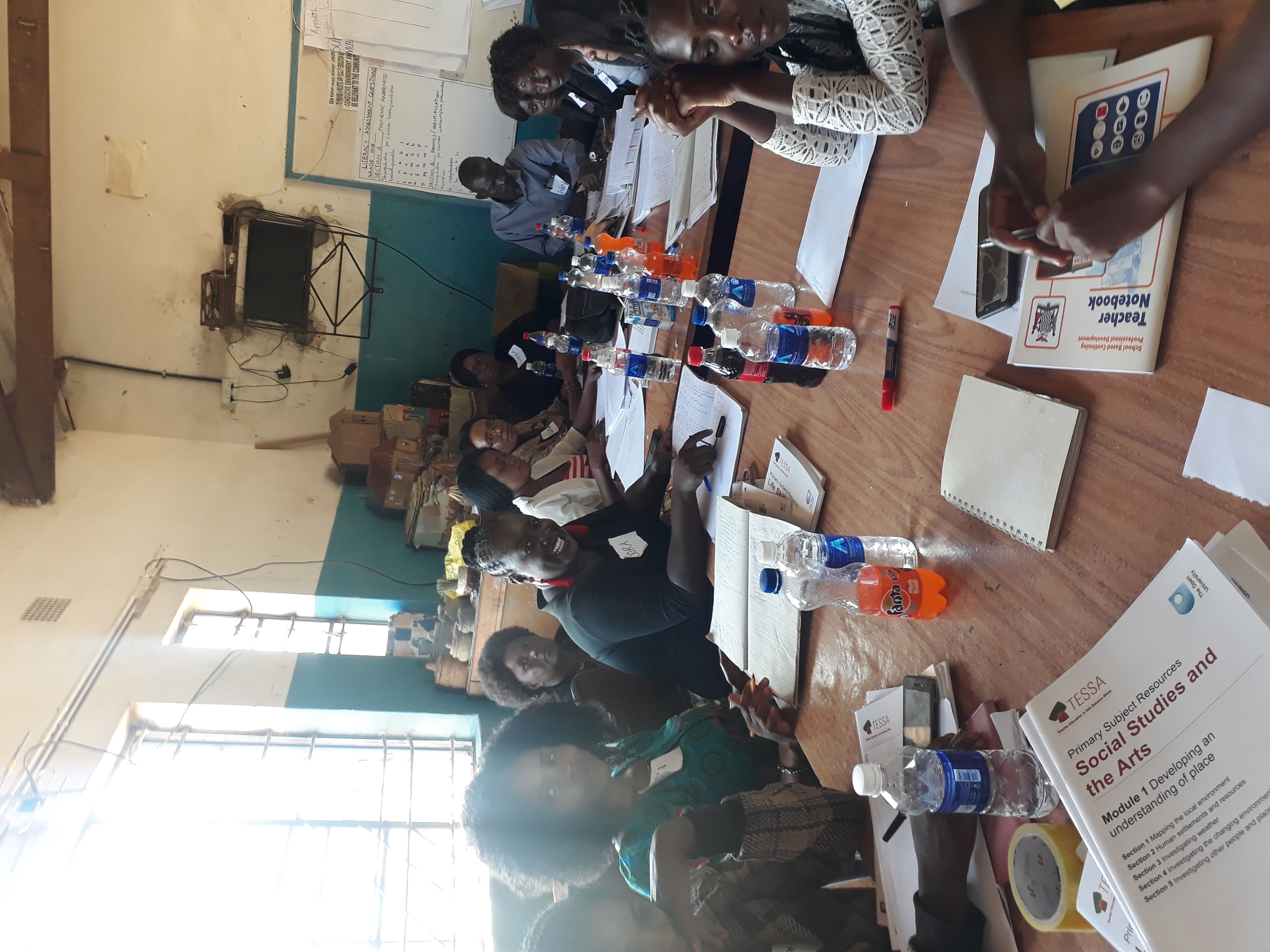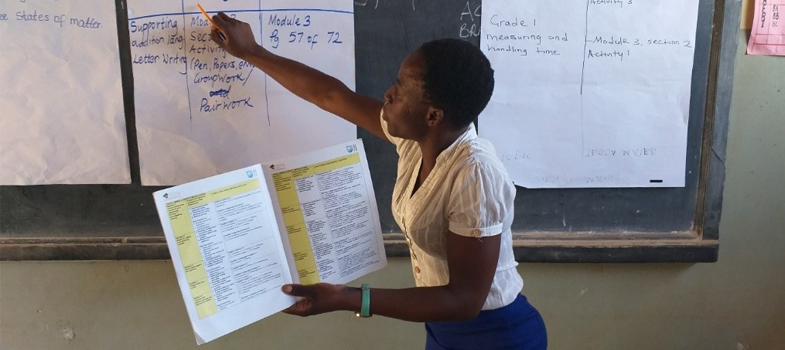Training guide
4. Using TESSA resources
4.3. Using TESSA resources to support my teaching
Activity 4.8: Getting ideas from TESSAThe TESSA activities are not lesson plans, nor are they grade specific. Follow these steps to help you find what you need:
|
Example 4.3: ScienceScience Module 2, Section 3 (Looking at liquids) describes a brainstorming activity to elicit prior knowledge about water and where drinking water comes from. A Grade 5 teacher could adapt the activity by changing the topic of the brainstorm to water borne diseases in order to find out what learners already know about them. A Grade 3 teacher could adapt the activity by changing the topic of the brainstorm to the three states of matter and build up a picture of a range of different substances that learners are familiar with, before classifying them and discussing their properties. |
Example 4.4: NumeracyNumeracy Module 1, Section 1 (Learning through games) has a bingo game, to help children recognise numbers 1-50. A Grade 1 or Grade 2 teacher could adapt the activity to include numbers 1-100 |
Example 4.5: LiteracyLiteracy Module 1 Reading and writing for a range of purposes has many ideas that can be adapted for different grades. For example, Section 2 has a case study and activity on reading aloud. For a Grade 1 or 2 teacher, this would provide ideas for you to make reading aloud more interactive and more engaging. A Grade 6 or 7 teacher, might encourage learners to read aloud to each other, or work with a lower grade teacher and encourage older learners to read to younger ones. There are also ideas about how to encourage learners to write stories themselves, which could be easily adapted for different levels. |
Example 4.6: Social studies or ArtsSocial Studies and the Arts Module 1, Section 4 (Investigating the changing environment) describes how the teacher asks her class to investigate the plants in their local environment and takes them on a field trip. A Grade 6 teacher, could adapt this activity; instead of organising a field trip they could ask their class to critically review their local environment as they walk to and from school. They could gather the information together and discuss the role of different community groups in making improvements. A literacy teacher would be interested in this work as learners could be asked to write a newspaper article, reporting on their local environment, or some campaign literature, highlighting the importance of disposing of rubbish properly. |

Kabwe teachers planning lessons with TESSA resources
